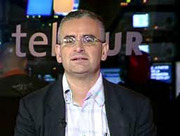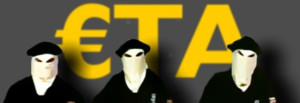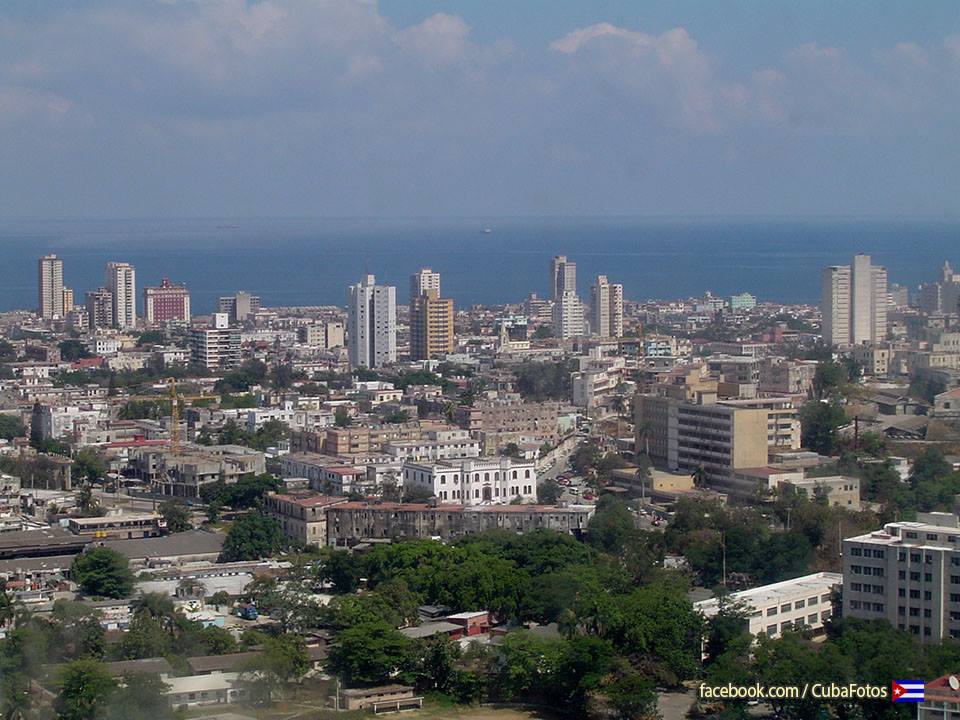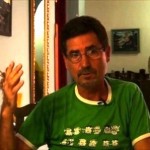MADRID REQUESTS CUBA EXTRADITION OF ACCUSED ETA TERRORISTS.
The resolution of this demand determines the position of Spain at the request of the regime out of the list of countries that sponsor terrorism.
The Spanish government recently reiterated -in February-December and, officially, requests for extradition to Cuba of ETA José Ángel Urtiaga Martínez and José Ignacio Urbieta Etxarte. They reside on the island since the eighties and have cases pending with the Spanish justice, as reported Saturday the Madrid newspaper El Mundo.
The two ETA members are processed by collaboration with ETA and its alleged links to the Revolutionary Armed Forces of Colombia (FARC). The newspaper notes that Havana has never responded to the demands of the Spanish Government.
The average stresses that this attitude contrasts with the claim of the regime to the US to be removed from the list of countries accused of collaborating with terrorism and that this resolution is key to Spain would approve any such claim.
This information is revealed after the visit this week of Spanish president José Luis Rodríguez Zapatero, has caused a political row in Spain. Zapatero used his visit to show favor of Cuba out of the list of countries that sponsor terrorism.
World qualifies as “curious” the current positioning of Zapatero because, it said, was his government’s first move to Cuba the request made by the Spanish justice for the extradition of José Ángel Urtiaga and José Ignacio Etxarte, Rizos.
Each time the Foreign Minister, José Manuel García-Margallo, has participated in a bilateral meeting, asked the two extraditions, without getting any response.
The situation of ETA in Cuba has always been a matter of interest, but now its importance has grown in an exponential fashion by the negotiations that are taking place between the governments of Washington and Havana.
According to El Mundo, the Spanish Government argues that the decision that the Castro regime take about two ETA members is key to show favor of its removal from the blacklist.
Besides the two terrorists wanted, El Mundo notes that on the island, still live another six. Four of form recognized by the regime causes -two more with ear-rings and two, Michelangelo Apalategui Apala and fellow writer Joseba Sarrionandia without Havana admit that live there.
At the moment, living in Cuba, recognized and pending cases, besides Urteaga and Etxarte, Arrugaeta San Emeterio and Azkarate Inchaurrondo. However, according to official sources quoted by El Mundo, no court has requested his extradition.
They also live, but recognized lawsuits pending Txutxo Abrisqueta, murderer of Captain Martin Barrios and now successful businessman, and José Luis Rodríguez Muñoa. Besides unrecognized Apala and Sarrionandia.
CLAIMED BY SPAIN FOR ETA TERRORISTS.
The first seven Basque terrorists arrived in Cuba on May 1, 1984. “Another six were received at different times for humanitarian reasons,” explains documentary.
José Ángel Urtiaga Martinez is accused of involvement in the shooting of the police station in Santurce. Also the murder of Alfredo Ramos Vázquez (bar owner), Vicente Zorita Alonso (candidate of Alianza Popular) and an engineer Lemoniz nuclear power, according to Europa Press.
Later he participated in the bombing of a telephone exchange in Madrid and in the kidnapping of Diego Prado and Colon de Carvajal.
He was recently accused of acting as head of the group of ETA members in Cuba between 1984 and 1998 and addressed to the terrorist group in two letters in which it requested permission for members of this organization “to experience” in Venezuela with explosives.
José Miguel Arrugaeta, meanwhile, participated in the kidnapping and murder of Captain Martin Barrios in 1983, after which he fled to France. In March 2010 a Spanish judge attended international arrest warrants against him and other members of ETA and FARC, processed by collaborating to attack senior Colombian charges.
And finally, Jesus appears Abrisketa, who was considered by police as the leader of “political-military” ETA. He was accused of robbery at gunpoint two hundred kilos of dynamite and of having participated in the meeting which decided the placement of a series of bombs in 1969.
Agencies / InternetPhotos / www.thecubanhistory.com
The Cuban History, Hollywood.
Arnoldo Varona, Editor.
MADRID PIDE A CUBA EXTRADICIÓN DE ETARRAS ACUSADOS DE TERRORISTAS.
La resolución de esta demanda condiciona la postura de España ante la petición del régimen de salir de la lista de países que patrocinan el terrorismo.
El Gobierno español reiteró recientemente —en diciembre y en febrero—, de forma oficial, las solicitudes de extradición a Cuba de los etarras José Ángel Urtiaga Martínez y José Ignacio Etxarte Urbieta. Ambos residen en la Isla desde los ochenta y tienen causas pendientes con la justicia española, según informa este sábado el periódico madrileño El Mundo.
Los dos etarras están procesados por colaboración con ETA y por su presunta relación con las Fuerzas Armadas Revolucionarias de Colombia (FARC). El periódico señala que La Habana no ha respondido nunca a las demandas del Gobierno español.
El medio subraya que esta actitud contrasta con el reclamo del régimen a Estados Unidos para ser retirado de la lista de países acusados de colaborar con el terrorismo y de que esta resolución es clave para que España se muestre favorable a dicha reclamación.
Esta información se revela después de la visita esta semana del expresidente español José Luis Rodríguez Zapatero, que ha provocado una bronca política en España. Zapatero aprovechó su visita para mostrarse partidario de que Cuba salga de la lista de países que patrocinan el terrorismo.
El Mundo califica como “curioso” el posicionamiento actual de Zapatero porque, según indica, fue su Gobierno el primero en trasladar a Cuba la solicitud realizada por la justicia española para la extradición de José Ángel Urtiaga y José Ignacio Etxarte, Rizos.
Cada vez que el ministro de Asuntos Exteriores, José Manuel García-Margallo, ha participado en una reunión bilateral, ha pedido las dos extradiciones, sin obtener ningún tipo de respuesta.
La situación de los etarras en Cuba siempre ha sido un asunto de interés, pero en estos momentos su importancia ha crecido de un modo exponencial por las negociaciones que se están llevando a cabo entre los gobiernos de Washington y La Habana.
De acuerdo con El Mundo, el Gobierno español sostiene que la decisión que el régimen castrista adopte sobre los dos etarras es clave para mostrarse partidario de su retirada de la lista negra.
Además de los dos terroristas solicitados, El Mundo señala que en la Isla, siguen viviendo otros seis. Cuatro de forma reconocida por el régimen —dos más con causas pendientes— y dos, Miguel Ángel Apalategui Apala y el también escritor Joseba Sarrionandia, sin que La Habana admita que viven allí.
En estos momentos, en Cuba viven, reconocidos y con causas pendientes, además de Urteaga y Etxarte, Arrugaeta San Emeterio y Azkarate Intxaurrondo. Sin embargo, según fuentes oficiales mencionadas por El Mundo, ningún juzgado ha pedido su extradición.
También viven, reconocidos pero sin causas pendientes, Txutxo Abrisqueta, asesino del capitán Martín Barrios y ahora empresario de éxito, y José Luis Rodríguez Muñoa. Además de los no reconocidos Apala y Sarrionandia.
RECLAMADOS POR ESPAÑA POR TERRORISTAS DEL ETA.
Los siete primeros terroristas vascos llegaron a Cuba el 1 de mayo de 1984. “Otros seis fueron acogidos en diferentes momentos por razones humanitarias”, explica el documental.
José Ángel Urtiaga Martínez está acusado de participar en el ametrallamiento de la comisaría de Policía de Santurce. También de los asesinatos de Alfredo Ramos Vázquez (propietario de un bar), Vicente Zorita Alonso (candidato de Alianza Popular) y de un ingeniero de la central nuclear de Lemoniz, según Europa Press.
Posteriormente participó en la voladura de una central telefónica en Madrid y en el secuestro de Diego Prado y Colón de Carvajal.
Recientemente fue acusado de actuar como máximo responsable del colectivo de etarras en Cuba entre 1984 y 1998 y de dirigirse a la banda terrorista en dos cartas en las que solicitaba permiso para que integrantes de esta organización “experimentaran” en Venezuela con artefactos explosivos.
José Miguel Arrugaeta, por su parte, participó en el secuestro y asesinato del capitán Martín Barrios en 1983, tras lo cual huyó a Francia. En marzo de 2010 un juez español cursó órdenes internacionales de detención contra él y otros miembros de ETA y de las FARC, procesados por colaborar para atentar contra altos cargos colombianos.
Y, por último, aparece Jesús Abrisketa, quien estaba considerado por la policía como el máximo dirigente de ETA “político-militar”. Fue acusado del robo a punta de pistola de doscientos kilos de dinamita y de haber participado en la reunión que decidió la colocación de una serie de bombas en 1969.
Agencies/InternetPhotos/www.thecubanhistory.com
The Cuban History, Hollywood.
Arnoldo Varona, Editor.



 MADRID REQUESTS CUBA the Extradition of Accused ETA Terrorists. ** MADRID PIDE A CUBA Extradición de Etarras Acusados de Terrorismo.
MADRID REQUESTS CUBA the Extradition of Accused ETA Terrorists. ** MADRID PIDE A CUBA Extradición de Etarras Acusados de Terrorismo.



